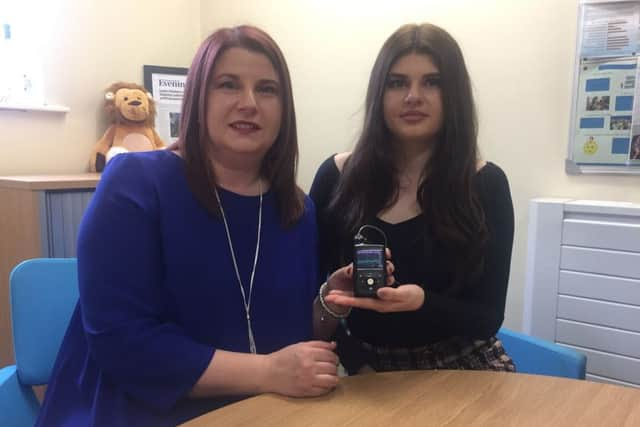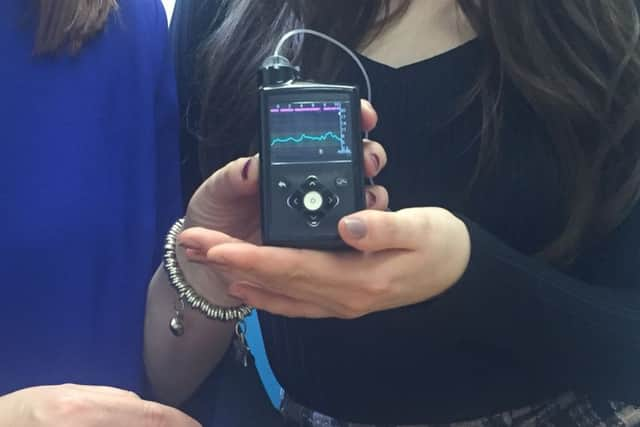How a medical pump has transformed the life of a Leeds teenager living with Type 1 diabetes
and live on Freeview channel 276
Laura Dunion is believed to be the first NHS patient in the country to receive the self-adjusting insulin delivery system - the Medtronic MiniMed 670G - outside of clinical trials.
After being given the pump through Leeds Children’s Hospital, the 17-year-old, who was diagnosed with diabetes at the age of eight, has gone from having to inject herself with insulin multiple times a day to being able to forget about her condition and go about her daily life.


Advertisement
Hide AdAdvertisement
Hide AdThe student, from Oulton, Leeds, said a sensor placed on her skin uses a Bluetooth transmitter to detect when insulin is needed and pump it into the body through a tube in her stomach.
The innovative system works by adapting to the user’s body and adjusts insulin delivery automatically to stabilise glucose levels, avoiding sugar lows and spikes.
Speaking nearly five months after having the pump installed in November last year, Laura said the technology has given her the confidence to throw herself into volunteering, go on skiing holidays and start learning to drive.
“Once I’d heard about it and what it did, I wanted it,” she told the Press Association.


Advertisement
Hide AdAdvertisement
Hide Ad“It did take time getting used to it, because I had to take a big step backwards. You kind of had to let it do its job, you can’t do what you’ve always been used to doing.
“(Before) I actually had to put my blood in and correct the insulin, now I had to take a big step back and say ‘This is what it does, I can’t interfere with it’.”
The teenager, who is studying childcare and development at New College in Pontefract, wore an older version of the pump, which could not correct blood sugar highs, when she climbed Mont Blanc in the Alps last July, alongside a group of nine other young people.
She said of the experience: “It really opened my eyes to the fact that, no matter what you do, you’re not alone.”
Advertisement
Hide AdAdvertisement
Hide AdDiscussing the difficulties related to her condition and the ways the new pump has helped tackle them, she said: “(Diabetes has) never stopped me from doing anything, but if I have been doing something and my blood’s dropped, then I’ve had to stop doing what I’m doing to go and sort it out.
“Now I can keep doing what I’m doing, because I know that my blood is not going to stop me.”
The teenager is set to live away from home for the first time in September this year, having been offered a place at Leeds Beckett University to study youth work and community development.
Her mother, Lynn Dunion, believes the pump will act as a “safety net”, and has helped her feel more reassured about her daughter’s transition to university.
Advertisement
Hide AdAdvertisement
Hide AdThe 46-year-old said the “traumatic” diabetes diagnosis meant she had to give her daughter regular insulin injections when she was younger, and would sometimes wake every two hours during the night to monitor her blood sugar levels.
She said: “Laura went from being nearly nine years old, out playing in the street and being a bit more independent with her friends, to being a child that I couldn’t leave in a room on her own at all without worrying that she may have a low blood sugar and collapse.
“Now, after nine years, I can sleep through the night without worrying about Laura’s blood.”
Dr Fiona Campbell, a consultant in children’s diabetes at Leeds Children’s Hospital, said Laura had been “extremely helpful” at trialling previous technologies, and was therefore the right person to step forward and try the pump.
She added that the pump has been used by other patients since, and will continue to be used “as clinically appropriate”.
